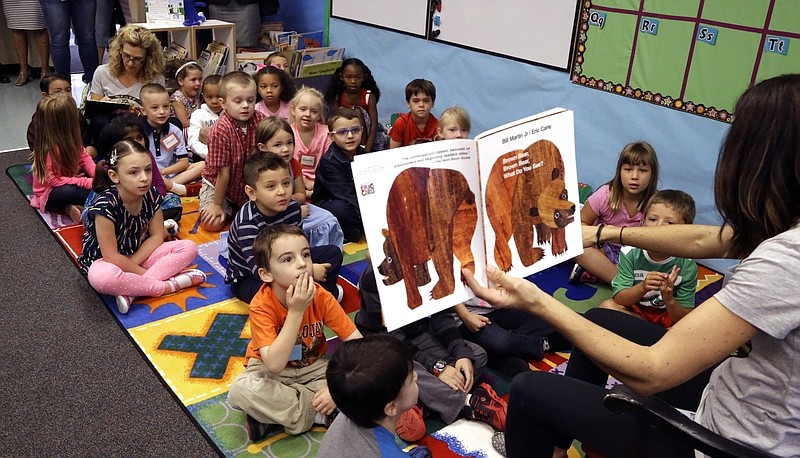A late amendment to the Republicans' tax overhaul plan would allow parents to put money they save for their children's college costs toward K-12 education, including private school tuition and homeschool expenses, in a proposal hailed as a win by school choice supporters.
The Senate plan, approved in the early hours of Saturday, Dec. 2, would expand 529 education savings accounts that have previously been restricted to college tuition and expenses.
"Expanding 529s to include any educational option is a common- sense reform that reflects the reality that we must begin to view education as an investment in individual students, not systems," Education Secretary Betsy DeVos said.
Colleges and universities must be accredited or recognized by the U.S. Department of Education for the expenses to be eligible for 529 money, but it's unclear how that type of requirement would apply to K-12 expenses at private schools or homeschooling, if at all.
Locally, some opinions are split on whether this move furthers the push for "school choice," rather than public education.
"That is of real concern simply because for every child that you move from public school that public money follows the child," said Dan Liner, president of the Hamilton County Education Association. "Even more comical is the fact that these savings accounts can be created for a child who has not even been born."
As of the 2016-2017 year, about 70,000 students were attending private school across the state, according to the Tennessee Department of Education's most recent data, compared to the nearly 1 million students who attended public schools in 2015-2016.
For some families, expanded 529 education savings accounts would allow for greater access to prestigious private schools that are often out of reach for those who cannot afford to attend.
"We join with our colleagues in the National Association of Independent Schools in supporting the inclusion of additional options for education savings in the bills being considered," said Jay Mayfield, director of communications and marketing for McCallie School in Chattanooga, in a statement. McCallie is a boys college preparatory school for grades 6-12, where tuition can run more than $26,000 a year for day students.
"McCallie is proud to welcome students from Chattanooga and across the nation from all walks of life, and we welcome opportunities for greater financial access," stated Mayfield when asked about the school's position on the tax bill.
The measure was part of the Republicans' sweeping $1.5 trillion revamp of the nation's tax codes approved early Saturday. The House earlier this year approved a similar 529 expansion effort in its version of the tax overhaul, which still needs to be reconciled with the Senate plan. The House version did not include homeschooling expenses.
Sen. Ted Cruz, a Texas Republican, said the structure of the savings accounts would not change and he expects states will have the discretion over what qualifies under the K-12 expansion.
Cruz had proposed the amendment that would cover things such as tuition, books, online school materials, tutoring and therapy for students with disabilities, from public, private and home schools.
If signed into law, it would mark an expansion of the 20-year-old 529 savings program, which generally works by allowing families to set up savings accounts to contribute and pool large amounts of money for future schooling expenses with some tax savings on the returns on the investments.
Some school choice supporters have been critical of 529 expansion ideas because they would only help high-income families that can afford to put money in the savings programs. The cap for how much money can be contributed varies by state, but it can be as much as $500,000 total for each account, according to the College Savings Plans Network.
"Education Savings Accounts for K-12 tuition are vouchers in another form, pure and simple. It's fine for families of means to send children to private schools, but it should not hurt public schools when they do so through tax shelters like this one," said Jim Wrye, assistant executive director of communications and government relations for the Tennessee Education Association.
"Public schools are the foundation of our communities and our state. They are the responsibility of all Tennesseans, regardless of income or whether or not you have children in public schools," Wrye said. "That's why similar plans put forth in the Tennessee General Assembly are not passed by the Republican supermajority. We'd hope our congressional representatives would follow Tennessee's lead."
Staff writer Meghan Mangrum contributed to this report. Contact her at mmangrum@timesfreepress.com or 423-757-6592. Follow her on Twitter @memangrum.
